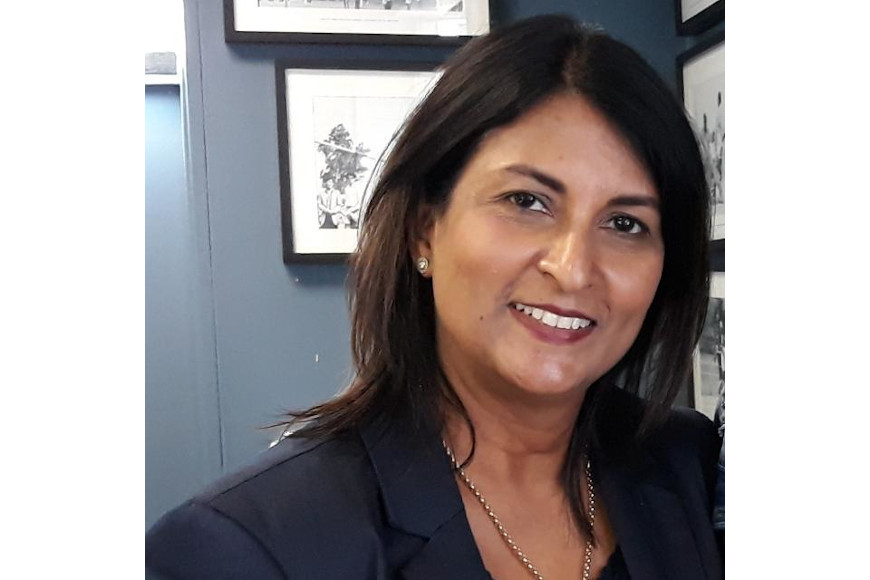The Durban University of Technology (DUT) continues to commend all its essential service workers for their dedication and commitment in providing services to the DUT community during the COVID-19 pandemic. DUT’s Communications team’s Waheeda Peters spoke to Deputy Dean Faculty of Health Sciences, Dr Pavitra Pillay whose journey at DUT began 24 years ago.
Q: Kindly tell me your role at the DUT?
A: “I have been employed as lecturer and then senior lecturer in the Department of Biomedical and Clinical Technology. I also served as Head of Department (HOD). I am currently seconded as Deputy Dean at the Faculty of Health Sciences and I represent the department and faculty on local, national and international platforms. As a researcher, my interest is in women’s health, particularly cervical cancer, since I feel strongly that this is a preventable disease that many women in developing countries succumb to. My masters research focused on the cervical cancer screening programme and my PhD research focused on the diagnostic aspects of the link between female genital schistsomiasis and cervical cancer. My other research interests include infectious diseases, public health and epidemiology.”
Q: How would you describe yourself?
A: “Someone who is hardworking, perseverant and always tries to see the best in everyone and every situation.”
Q: How do you respond to the needs of the Health Sciences students during COVID-19?
A: “In our faculty we had to adopt a blended learning approach since we required our Health Sciences students to come in for practical sessions and assessments in order to comply with their qualification requirements. Within the faculty we formed the Faculty COVID-19 Response Team, which I chair. The mandate of the team was to set up the necessary faculty protocols and to develop operational guidelines to limit the spread of COVID-19. The team also had to monitor social distancing within laboratories and other teaching venues used for practical sessions and assessments. The team provided a workshop for Health Sciences staff in 2020, when the lockdown levels had eased off entitled: Returning to Campus and the New Normal. The purpose of this workshop was to help staff, especially those who were not permitted on campus during the stricter lockdown levels, to transition more easily when they were allowed to return. From my perspective as a lecturer, WhatsApp, online teaching and other online platforms were set up for enhanced communication with my students.”
Q: What are your main challenges you face daily?
A: “Working during COVID-19 has been a challenge and also provided some new ways of doing things. The challenging aspects include the limited physical or face to face contact with people- students, colleagues, family and friends in general. The constant worry about the possibility of being infected and the limited availability of vaccines especially to the general public. The other disheartening aspects of COVID-19 included the loss of loved ones and humanity in general. In a sense I felt COVID fatigue, since the pandemic forced us to make drastic life changes and this caused not only physical but also mental and emotional strain. The pandemic posed several challenges such as the rapid migration to an online platform for teaching and learning. This was also challenging for our students who also have issues with connectivity and devices in addition to coping with the new platform for their learning. On a positive note, I am excited at the prospect of developing innovative ways of imparting knowledge through this platform, despite having taught in the conventional way for several years. This ‘new normal’ also forced us to reflect on our lives and the lives of others, especially not to take anyone or anything for granted.”
Q: How do you de-stress in your own capacity considering the mental capacity of your day?
A: “Through meditation and through reading.”
Q: A typical day entails…
A: “Coming to the office, attending to emails and other queries from staff and students, attending a meeting or two (or more meetings), also fitting in marking of assessments, postgraduate supervision, delivering an online lecture, and fitting in my personal research.”
Q: If you had one wish what would it be?
A: “My wish would be for improved education, housing and sanitation, healthcare and related infrastructure for our citizens who need it the most. The youth have so much promise, which needs to be properly channelled, after all they are the future of our beautiful country.”
Q: What do you treasure the most in life?
A: “The wonderful life lessons taught by my late parents, and my relationships with those I hold dear, my family and friends.”
What are your favourite things to do when not at work?
A: “I love hiking and amateur wildlife photography.”
Q: What is your favourite part of your day?
A: “Sunrise, when I feel grateful for each new day that I have an opportunity to be part of and make even a small difference.”
Q: Are you a series or reality TV person?
A: “A reality TV person.”
Q: What is your practical advice or mantra you follow and would impart to students is?
A: “Have courage and keep focused, set yourself goals and work hard to achieve them, hard work always pays!”


